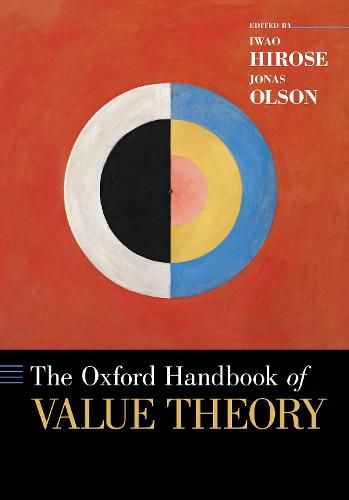Readings Newsletter
Become a Readings Member to make your shopping experience even easier.
Sign in or sign up for free!
You’re not far away from qualifying for FREE standard shipping within Australia
You’ve qualified for FREE standard shipping within Australia
The cart is loading…






Value theory, or axiology, looks at what things are good or bad, how good or bad they are, and, most fundamentally, what it is for a thing to be good or bad. Questions about value and about what is valuable are important to moral philosophers, since most moral theories hold that we ought to promote the good (even if this is not the only thing we ought to do). This Handbook focuses on value theory as it pertains to ethics, broadly construed, and provides a comprehensive overview of contemporary debates pertaining not only to philosophy but also to other disciplines-most notably, political theory and economics.The Handbook’s twenty-two newly commissioned chapters are divided into three parts. Part I: Foundations concerns fundamental and interrelated issues about the nature of value and distinctions between kinds of value. Part II: Structure concerns formal properties of value that bear on the possibilities of measuring and comparing value. Part III: Extensions, finally, considers specific topics, ranging from health to freedom, where questions of value figure prominently.
$9.00 standard shipping within Australia
FREE standard shipping within Australia for orders over $100.00
Express & International shipping calculated at checkout
Value theory, or axiology, looks at what things are good or bad, how good or bad they are, and, most fundamentally, what it is for a thing to be good or bad. Questions about value and about what is valuable are important to moral philosophers, since most moral theories hold that we ought to promote the good (even if this is not the only thing we ought to do). This Handbook focuses on value theory as it pertains to ethics, broadly construed, and provides a comprehensive overview of contemporary debates pertaining not only to philosophy but also to other disciplines-most notably, political theory and economics.The Handbook’s twenty-two newly commissioned chapters are divided into three parts. Part I: Foundations concerns fundamental and interrelated issues about the nature of value and distinctions between kinds of value. Part II: Structure concerns formal properties of value that bear on the possibilities of measuring and comparing value. Part III: Extensions, finally, considers specific topics, ranging from health to freedom, where questions of value figure prominently.